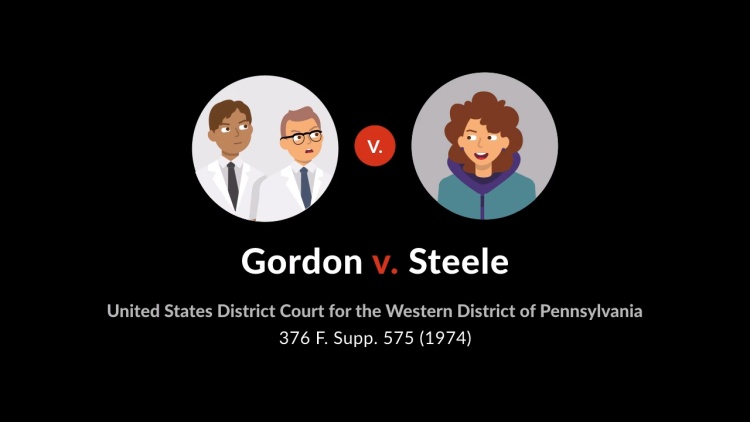Gordon v. Steele
United States District Court for the Western District of Pennsylvania
376 F. Supp. 575 (1974)
- Written by DeAnna Swearingen, LLM
Facts
On February 25, 1972, Susan Gordon (plaintiff), then an eighteen-year-old, legal adult, injured her wrist. Gordon was treated by two doctors at an Erie County, Pennsylvania hospital (defendants). Gordon claimed that the defendants’ malpractice resulted in continuing pain and disability in her wrist. At the time of the injury, Gordon and all defendants were citizens of Pennsylvania. On August 9, 1972, Gordon enrolled in an Idaho college, where she rented and maintained an apartment. On April 10, 1973, Gordon filed suit against the defendants in the Federal District Court for the Western District of Pennsylvania, citing diversity jurisdiction. Gordon’s admission application and university records list her parents’ Pennsylvania address. Gordon also maintained a Pennsylvania driver’s license and bank account, and returned to Pennsylvania on Christmas and summer vacations to visit and work. However, Gordon claimed that she did not plan to return to Pennsylvania, that her visits were generally for medical treatment and depositions, and that she never sublet her apartment during those visits. Gordon secured insurance in Idaho. Gordon also stated that she hoped to marry a member of her Mormon faith in a Mormon Temple, which would be difficult or impossible in Pennsylvania. The defendants moved to dismiss the case for lack of jurisdiction on the ground that diversity of citizenship did not exist. The federal district court, as the trier of fact, was charged with determining Gordon’s domicile for purposes of diversity jurisdiction.
Rule of Law
Issue
Holding and Reasoning (Knox, J.)
What to do next…
Here's why 907,000 law students have relied on our case briefs:
- Written by law professors and practitioners, not other law students. 47,100 briefs, keyed to 996 casebooks. Top-notch customer support.
- The right amount of information, includes the facts, issues, rule of law, holding and reasoning, and any concurrences and dissents.
- Access in your classes, works on your mobile and tablet. Massive library of related video lessons and high quality multiple-choice questions.
- Easy to use, uniform format for every case brief. Written in plain English, not in legalese. Our briefs summarize and simplify; they don’t just repeat the court’s language.





